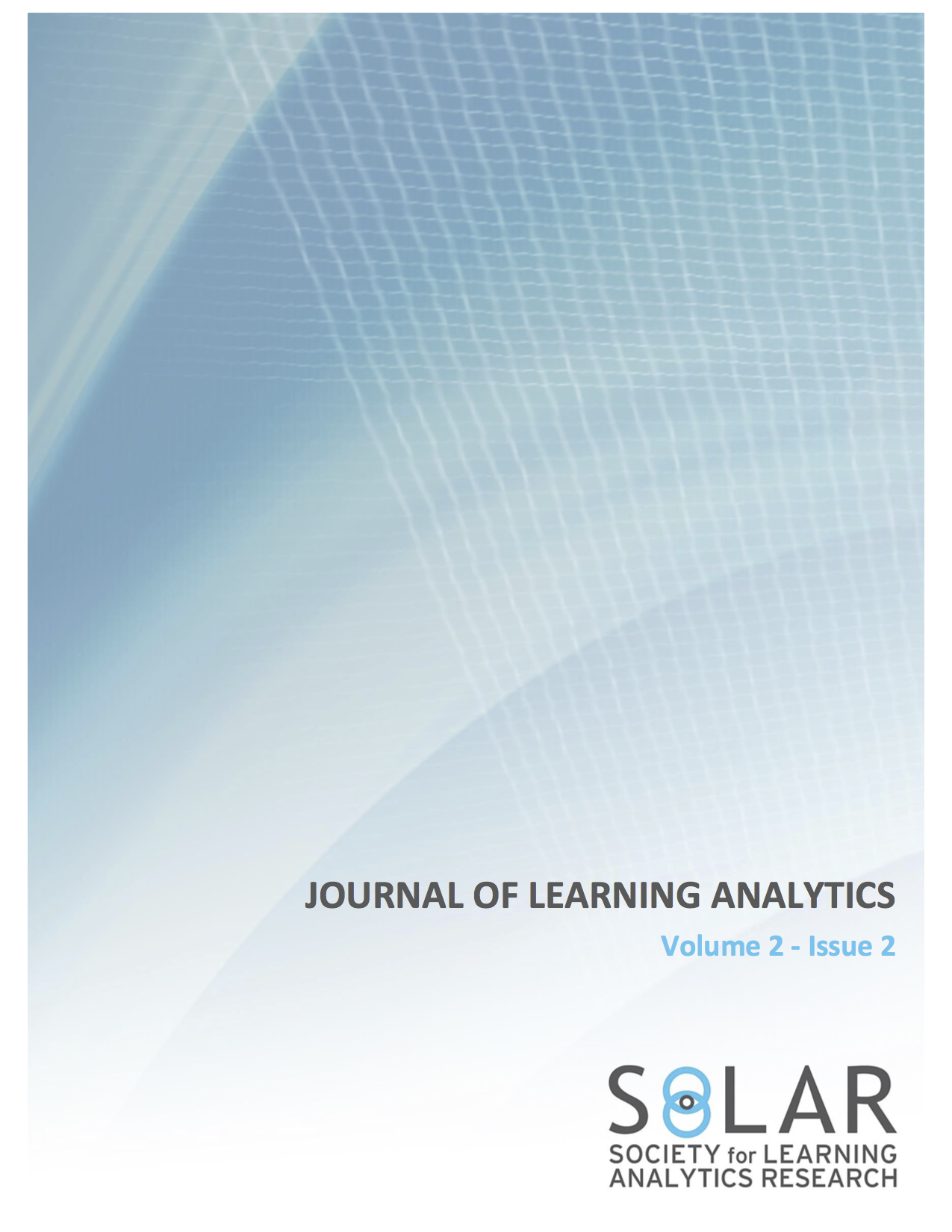An Adaptive Model of Student Performance Using Inverse Bayes
DOI:
https://doi.org/10.18608/jla.2014.13.10Keywords:
Inverse Bayes, adaptive, electronic tutor, online assessment, student certainty, student confidenceAbstract
I propose a coherent framework for the use of Inverse Bayesian estimation to summarize and make predictions of student behavior in adaptive educational settings. The Inverse Bayes Filter utilizes Bayes theorem to estimate the relative impact of contextual factors and internal student factors on student performance using time series data across a range of possible dimensions. The Inverse Bayesian algorithm treats the student as a Bayesian learner; her partial credit score or confidence is proportional to her prior knowledge and how she interprets her environment. Once the algorithm has weighted internal and external factors this information is used to make a prediction about the student’s next attempt.
Downloads
Published
How to Cite
Issue
Section
License

This work is licensed under a Creative Commons Attribution-NonCommercial-NoDerivatives 4.0 International License.
TEST


